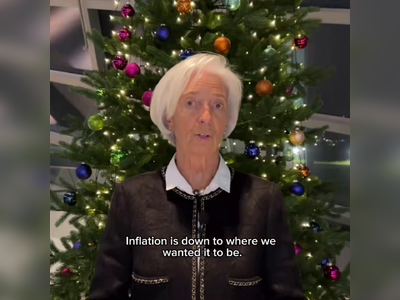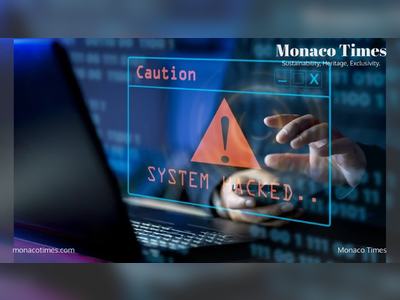0:00
0:00
Pope Francis has reportedly shown minor signs of improvement during his hospitalization.
The Vatican provides updates regarding the pontiff's health as he undergoes treatment for pneumonia.
Pope Francis, currently in critical condition due to pneumonia in both lungs, has shown signs of "slight improvement," as noted in the Vatican's latest bulletin released on Monday.
Despite this positive development, medical professionals have chosen not to provide any prognosis due to the intricacies of the Pope's health issues.
The 88-year-old pontiff was admitted to Rome's Gemelli hospital on February 14 after experiencing severe breathing difficulties, which have since intensified.
The Vatican stated that the Holy Father's health has improved, with no additional occurrences of asthmatic respiratory episodes.
Some laboratory tests have also revealed encouraging changes.
Although Pope Francis is still receiving oxygen, the rate and concentration have been slightly decreased, indicating some stabilization in his condition.
However, doctors have advised that the treatment plan for Francis will require more time before any significant effects may be observed.
They confirmed he will remain hospitalized for at least this week.
On the evening following his health update, the Vatican announced that the Pope had a comfortable night, was not in pain, was eating well, and seemed to be in good spirits.
Significantly, he communicated with a priest from a parish in Gaza, displaying his continued pastoral engagement.
The Pope’s health has elicited a worldwide outpouring of support, with prayers and tributes being offered globally.
What began as a diagnosis of bronchitis progressed to double pneumonia, prompting a critical health assessment by Saturday.
Additionally, the Vatican reported that while blood tests indicated early signs of mild renal failure, this is currently manageable and not seen as a major issue.
In response to the Pope's hospitalization, a prayer gathering is planned in St. Peter's Square, led by Cardinal Pietro Parolin, the Vatican's Secretary of State.
Meanwhile, the chaplain of Gemelli hospital, Nunzio Corrao, has called for prayers, encouraging a unified hope for the Pope's recovery.
Concerns among medical professionals persist, particularly regarding the risk of sepsis, a potentially life-threatening complication resulting from severe pneumonia.
Professor Sergio Alfieri, head of the medical team at Gemelli, emphasized the need for careful monitoring to avoid pathogens entering the bloodstream.
The speculation surrounding the Pope's health has reignited discussions about the future of his papacy.
Pope Francis has faced significant health challenges in the past, including the surgical removal of part of his lung during his earlier years.
While there is speculation about a possible resignation, church officials and theologians have stated that now is not the appropriate time for such discussions.
Senior clerics assert that the Pope remains committed to his duties, even from his hospital bed, and continues to provide spiritual guidance.
No immediate decisions regarding leadership succession have been made, and church leaders stress the importance of concentrating on the Pope’s health at this moment.
His condition has resonated with many, prompting calls for collective reflection on his role in today's divided world.
Despite this positive development, medical professionals have chosen not to provide any prognosis due to the intricacies of the Pope's health issues.
The 88-year-old pontiff was admitted to Rome's Gemelli hospital on February 14 after experiencing severe breathing difficulties, which have since intensified.
The Vatican stated that the Holy Father's health has improved, with no additional occurrences of asthmatic respiratory episodes.
Some laboratory tests have also revealed encouraging changes.
Although Pope Francis is still receiving oxygen, the rate and concentration have been slightly decreased, indicating some stabilization in his condition.
However, doctors have advised that the treatment plan for Francis will require more time before any significant effects may be observed.
They confirmed he will remain hospitalized for at least this week.
On the evening following his health update, the Vatican announced that the Pope had a comfortable night, was not in pain, was eating well, and seemed to be in good spirits.
Significantly, he communicated with a priest from a parish in Gaza, displaying his continued pastoral engagement.
The Pope’s health has elicited a worldwide outpouring of support, with prayers and tributes being offered globally.
What began as a diagnosis of bronchitis progressed to double pneumonia, prompting a critical health assessment by Saturday.
Additionally, the Vatican reported that while blood tests indicated early signs of mild renal failure, this is currently manageable and not seen as a major issue.
In response to the Pope's hospitalization, a prayer gathering is planned in St. Peter's Square, led by Cardinal Pietro Parolin, the Vatican's Secretary of State.
Meanwhile, the chaplain of Gemelli hospital, Nunzio Corrao, has called for prayers, encouraging a unified hope for the Pope's recovery.
Concerns among medical professionals persist, particularly regarding the risk of sepsis, a potentially life-threatening complication resulting from severe pneumonia.
Professor Sergio Alfieri, head of the medical team at Gemelli, emphasized the need for careful monitoring to avoid pathogens entering the bloodstream.
The speculation surrounding the Pope's health has reignited discussions about the future of his papacy.
Pope Francis has faced significant health challenges in the past, including the surgical removal of part of his lung during his earlier years.
While there is speculation about a possible resignation, church officials and theologians have stated that now is not the appropriate time for such discussions.
Senior clerics assert that the Pope remains committed to his duties, even from his hospital bed, and continues to provide spiritual guidance.
No immediate decisions regarding leadership succession have been made, and church leaders stress the importance of concentrating on the Pope’s health at this moment.
His condition has resonated with many, prompting calls for collective reflection on his role in today's divided world.











